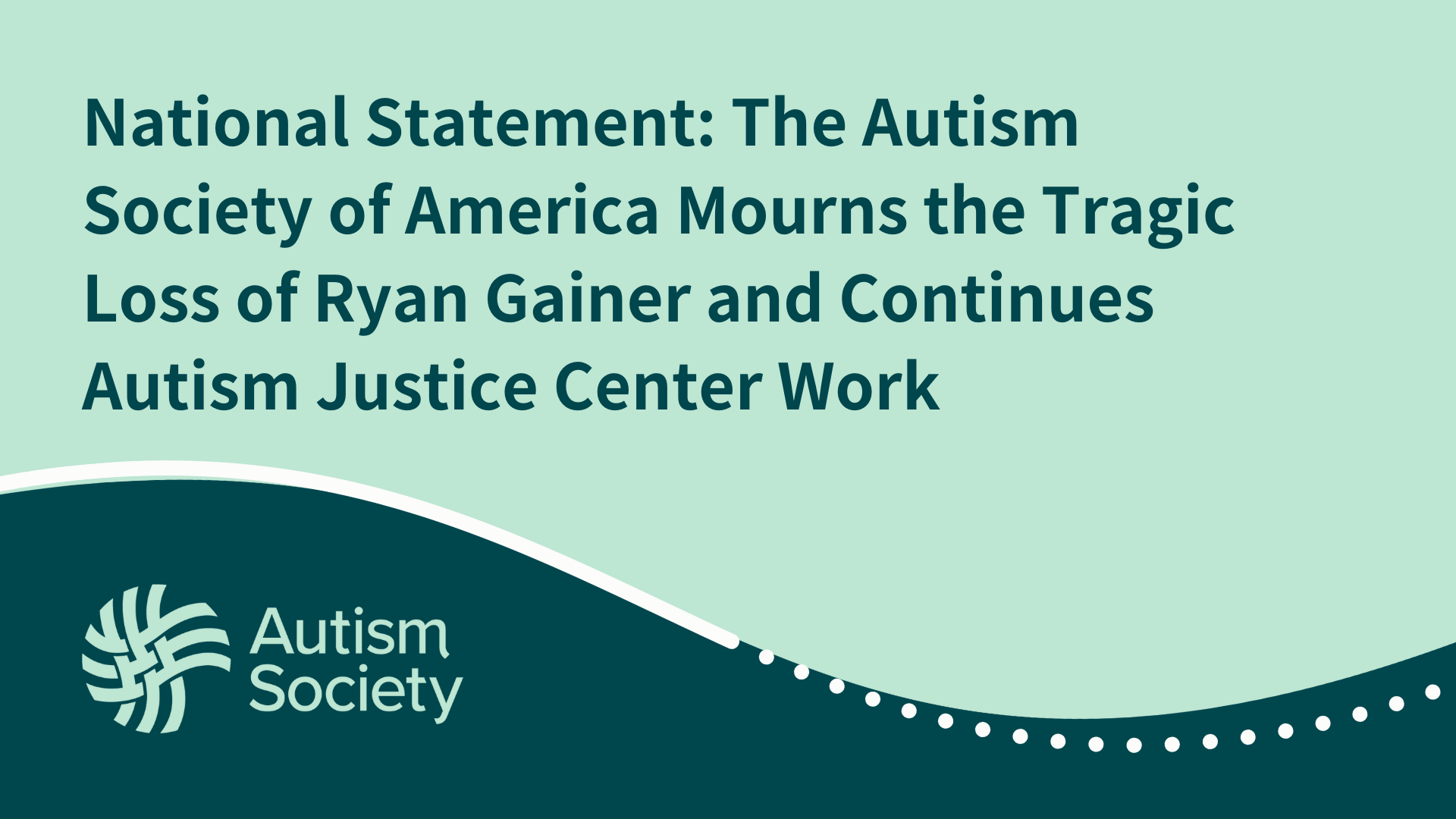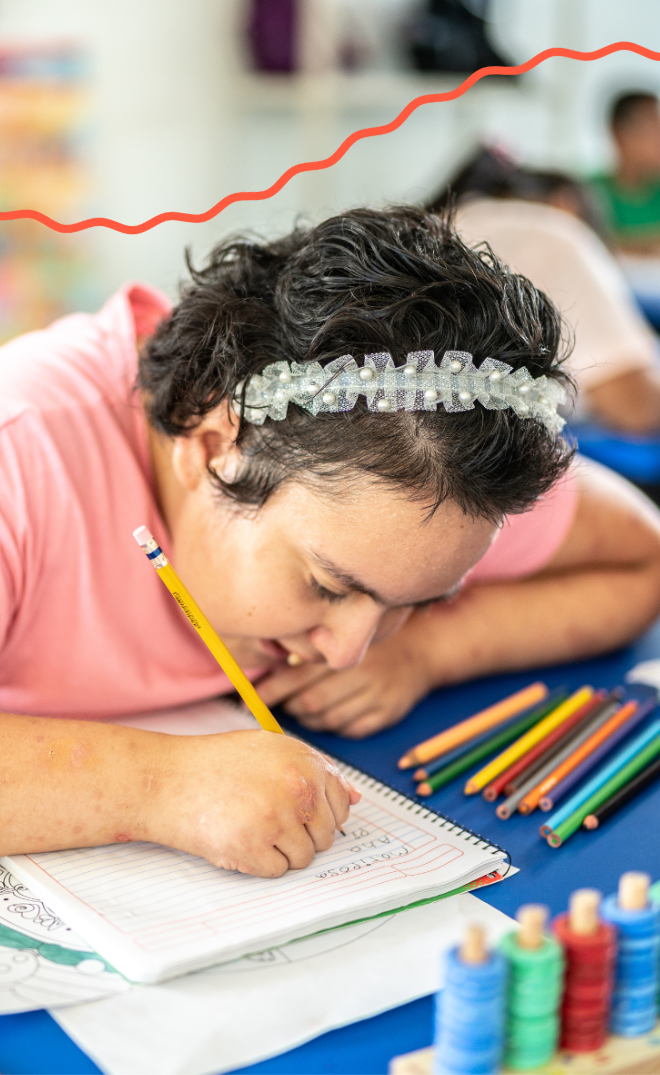
In this issue of Capitol Connection, find out about new grants to several states for respite care and community-based services, state advocacy resources to support employment, and ways to advocate for services in your state. Please continue to use the Autism Society’s online Action Center for voting information, links to disability-related legislation, and sample letters to use to educate Members of Congress.
Legislation Update
Budget Reconciliation
On August 16, President Biden signed the Inflation Reduction Act (IRA) into law. As previously mentioned in the August 11 issue of Capitol Connection, we are pleased the IRA maintains important health care subsidies and reduces prescription drug costs (see Families USA blog); however, we are very disappointed the budget package did not ultimately include additional funding for Medicaid home and community-based services and supports (HCBS). Many individuals, parents, and allies of the Autism Society of America made thousands of calls, emails, and visits with their members of Congress to educate them about the dire needs of people with Autism waiting for services. The waiting list for such services was over 850,000 before the pandemic. That number grew by 117,000 since the last time it was reported in 2020 (See Case for Inclusion), totaling almost 1 million people in need of services. With direct support professionals leaving the field due to low pay and difficult working conditions (made even more complex with COVID-19), the situation has become dire (see Community Supports in Crisis). The Autism Society will continue to advocate for additional community-based services outside of the reconciliation package.
Money Follows the Person
This week, the Centers for Medicare & Medicaid Services (CMS) awarded approximately $25 million in planning grants to five new states and territories to expand access to home and community-based services (HCBS) through Medicaid’s Money Follows the Person (MFP) demonstration program. With these awards, 41 states and territories across the country will now participate in MFP. Awards of up to $5 million are being announced for Illinois, Kansas, and New Hampshire, as well as for American Samoa and Puerto Rico – the first time MFP grants have been made available to territories (see letter to state Medicaid directors). A new report from CMS also describes how MFP has helped facilitate more than 107,000 transitions out of institutional settings since 2008.
Law Enforcement and First Responder Training
The Autism Society has been meeting with Members of Congress to garner additional cosponsors for two bills aimed at reducing poor outcomes during interactions with law enforcement and first responders: the Safe Interactions Act (S 1566/HR 3127) and the Human-Services Emergency Logistic Program Act (HELP Act/S 1570). In addition, Senator Casey (D-PA) expects to introduce a new bill to help collect data in regards to law enforcement interactions with individuals with disabilities soon. The Autism Society supports all three bills and urges its members and allies to help to garner cosponsors.
In related news, the Senate unanimously passed a bipartisan bill, the Law Enforcement Training and De-escalation Act of 2022 (S.4003), to authorize funding for law enforcement officers and mental health professional training in de-escalation techniques. The purpose of the bill is to help police and other first responders understand how to respond to individuals with mental health and other disabilities and to reduce injuries and deaths during interactions. It does not specifically mention individuals on the Autism spectrum.
ABLE Age Adjustment Act Hearing
Senator Bob Casey (D-PA) held a field hearing on the need to pass the ABLE Age Adjustment Act last week. The hearing included three witnesses who shared stories about how their ABLE Accounts helped them save money for things such as cars, rent, travel, and necessities to make their homes accessible. One spoke on how an ABLE account could improve her financial freedom but she became disabled after 26 so she is not able to take advantage of the program. The ABLE Age Adjustment Act would increase the age of disability status for eligibility to 46, allowing millions more to have access to these savings accounts. Thank you to the advocates who sent close to 200 letters to members of Congress urging passage. Please continue to send letters as this bill moves to the Senate floor. Also, learn more about ABLE Accounts and how to apply for one on the ABLE Resource Center website.
Financial Education Course
The Disability Employment TA Center just launched a two-session Financial Education course. The first lesson focuses on ABLE Accounts eligibility, choosing the right account and plan for you, how to open and deposit into the account, and more. The second discusses financial planning for people with disabilities in regards to SSI, SSDI, and saving on a limited income. You can register here to create an account and access the courses.
State Advocacy
Affiliate Training
Last week, the Autism Society hosted a State Advocacy Webinar for its affiliates. The presentation included information on how to effectively advocate at the state and local levels, state budget process, federal legislative priorities, building capacity at the state level, and tips on how to prepare for a meeting with a state policy maker. During the webinar, the public policy team highlighted a new Toolkit on State Advocacy. For more information and a link to the webinar and toolkit, contact Delancy Allred (dallred@autism-society.org).
New Medicaid Expansion Option
A new option program will expand medical needs under Medicaid for kids with Autism. The state plan option will allow for Medicaid to cover pediatric specialty and subspecialty medical services and coordination of care and services from out-of-state providers. The Department of Health and Human Services issued a letter to state Medicaid Directors on how the state can take up the option, how the federal government will assist with the costs, and more details on the program. The Autism Society supported the federal law that enabled this new option.
Competitive Integrated Employment State Guide
The Administration for Community Living in collaboration with eight other federal partners recently released two new resources along with a Dear Colleague letter to states focused on expanding competitive integrated employment (CIE). The first resource, Resource Leveraging & Service coordination to Increase Competitive Integrated Employment for Individuals with Disabilities, focuses on how local and state governments can “blend, braid, and sequence” funding. There is also an FAQ and a framework for policymakers and providers with additional tips. See also the Disability Scoop article on this development. For training on how to blend, braid, and sequence funding at the state level, see this archived LEAD Center webinar.
Oregon Competitive Integrated Employment Case
In an order issued on Aug. 12, the U.S. District Court in Oregon found that the State has fulfilled the terms of a settlement agreement with the U.S. Justice Department and people with disabilities in a landmark case challenging the state’s provision of employment services in segregated settings. In the case, Lane v. Brown/United States v. Oregon, the Justice Department claimed that Oregon was unnecessarily segregating adults with I/DD in sheltered workshops in violation of Title II of the ADA. In Olmstead v. L.C., the Supreme Court ruled that the ADA prohibits unnecessary segregation of people with disabilities. The Lane case was the first lawsuit to address how the ADA’s integration mandate applied to state employment services.
The agreement required Oregon to provide supported employment services and related employment services so that 1,115 sheltered workshop workers would newly receive jobs in the community at competitive wages over the agreement’s term. The agreement also required at least 7,000 people to receive supported employment services.
Please visit www.ada.gov/olmstead to learn more about the Civil Rights Division’s ADA Olmstead enforcement efforts and www.justice.gov/crt to learn more about the other laws enforced by the Civil Rights Division.
Education Trauma Grants
The US Department of Education announced a Project Prevent Grant Program which will award $6 million to local education agencies (LEA) that are impacted by community violence. These grants will increase mental health support and other strategies to prevent future community violence and support students who have been exposed to trauma. Studies have shown traumatic experiences for students drastically affect their educational outcomes. Also this week, the Department of Education announced a new $8 million grant competition aimed at increasing the diversity of the teacher workforce and preparing teachers to meet the needs of our most underserved students. State advocates can work with LEAs to ensure these grants benefit students with disabilities.
Lifespan Respite Grants
The Administration for Community Living has awarded three new grants for the Lifespan Respite Care Program. Two of the grants are for a five-year project period for Nevada and Wisconsin to expand their respite services. The last grant went to New Mexico to develop and enhance a lifespan respite care program that focuses on training respite providers. The Autism Society encourages affiliates to collaborate with grantees to ensure people with Autism are included in these services.
Share:






